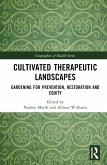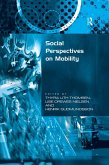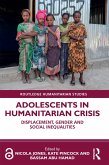Habermas and Social Research (eBook, ePUB)
Between Theory and Method
Redaktion: Murphy, Mark
43,95 €
43,95 €
inkl. MwSt.
Sofort per Download lieferbar

22 °P sammeln
43,95 €
Als Download kaufen

43,95 €
inkl. MwSt.
Sofort per Download lieferbar

22 °P sammeln
Jetzt verschenken
Alle Infos zum eBook verschenken
43,95 €
inkl. MwSt.
Sofort per Download lieferbar
Alle Infos zum eBook verschenken

22 °P sammeln
Habermas and Social Research (eBook, ePUB)
Between Theory and Method
Redaktion: Murphy, Mark
- Format: ePub
- Merkliste
- Auf die Merkliste
- Bewerten Bewerten
- Teilen
- Produkt teilen
- Produkterinnerung
- Produkterinnerung

Bitte loggen Sie sich zunächst in Ihr Kundenkonto ein oder registrieren Sie sich bei
bücher.de, um das eBook-Abo tolino select nutzen zu können.
Hier können Sie sich einloggen
Hier können Sie sich einloggen
Sie sind bereits eingeloggt. Klicken Sie auf 2. tolino select Abo, um fortzufahren.

Bitte loggen Sie sich zunächst in Ihr Kundenkonto ein oder registrieren Sie sich bei bücher.de, um das eBook-Abo tolino select nutzen zu können.
This collection brings together for the first time a set of researchers with Habermas' core concepts of colonisation, deliberation and communication at the centre of their research methodologies. Full of insight and innovation, the book is an essential read for anyone wanting to know more about approaches to social theory and its application in research.
- Geräte: eReader
- mit Kopierschutz
- eBook Hilfe
- Größe: 1.26MB
Andere Kunden interessierten sich auch für
![Socio-gerontechnology (eBook, ePUB) Socio-gerontechnology (eBook, ePUB)]() Socio-gerontechnology (eBook, ePUB)42,95 €
Socio-gerontechnology (eBook, ePUB)42,95 €![Cultivated Therapeutic Landscapes (eBook, ePUB) Cultivated Therapeutic Landscapes (eBook, ePUB)]() Cultivated Therapeutic Landscapes (eBook, ePUB)42,95 €
Cultivated Therapeutic Landscapes (eBook, ePUB)42,95 €![Social Perspectives on Mobility (eBook, ePUB) Social Perspectives on Mobility (eBook, ePUB)]() Social Perspectives on Mobility (eBook, ePUB)52,95 €
Social Perspectives on Mobility (eBook, ePUB)52,95 €![Literary and Cultural Representations of the Hinterlands (eBook, ePUB) Literary and Cultural Representations of the Hinterlands (eBook, ePUB)]() Literary and Cultural Representations of the Hinterlands (eBook, ePUB)43,95 €
Literary and Cultural Representations of the Hinterlands (eBook, ePUB)43,95 €![Adolescents in Humanitarian Crisis (eBook, ePUB) Adolescents in Humanitarian Crisis (eBook, ePUB)]() Adolescents in Humanitarian Crisis (eBook, ePUB)0,00 €
Adolescents in Humanitarian Crisis (eBook, ePUB)0,00 €![Food Pedagogies (eBook, ePUB) Food Pedagogies (eBook, ePUB)]() Food Pedagogies (eBook, ePUB)48,95 €
Food Pedagogies (eBook, ePUB)48,95 €![Making Progress in Housing (eBook, ePUB) Making Progress in Housing (eBook, ePUB)]() Sean McNelisMaking Progress in Housing (eBook, ePUB)42,95 €
Sean McNelisMaking Progress in Housing (eBook, ePUB)42,95 €-
-
-
This collection brings together for the first time a set of researchers with Habermas' core concepts of colonisation, deliberation and communication at the centre of their research methodologies. Full of insight and innovation, the book is an essential read for anyone wanting to know more about approaches to social theory and its application in research.
Dieser Download kann aus rechtlichen Gründen nur mit Rechnungsadresse in A, B, BG, CY, CZ, D, DK, EW, E, FIN, F, GR, HR, H, IRL, I, LT, L, LR, M, NL, PL, P, R, S, SLO, SK ausgeliefert werden.
Produktdetails
- Produktdetails
- Verlag: Taylor & Francis eBooks
- Seitenzahl: 228
- Erscheinungstermin: 25. November 2016
- Englisch
- ISBN-13: 9781317309758
- Artikelnr.: 47382172
- Verlag: Taylor & Francis eBooks
- Seitenzahl: 228
- Erscheinungstermin: 25. November 2016
- Englisch
- ISBN-13: 9781317309758
- Artikelnr.: 47382172
- Herstellerkennzeichnung Die Herstellerinformationen sind derzeit nicht verfügbar.
Mark Murphy is Reader in Education & Public Policy at the University of Glasgow, UK. He has a long history of writing about, and working with, Habermas' ideas, including co-editing Habermas, critical theory and education (with T. Fleming, Routledge, 2012).
Introduction: Putting Habermas to work in social research (Mark Murphy)
Section 1: Research on Colonisation Chapter 2: Habermas in the context of
social movements research: Colonisation as a living battle (Gemma Edwards)
Chapter 3: Habermas' critical theory as an alternative research paradigm:
The case of Everglades environmental policy (Claire Connolly Knox) Chapter
4: Habermas and the self-regulation of complementary and alternative
medicine (CAM) (Peter Kennedy) Section 2: The politics of deliberation 1:
Research on the public sphere Chapter 5: Working with and thinking against
Habermas (Judith Bessant) Chapter 6: Digitizing Habermas: Digital public
spheres & networked publics (Bjarki Valtysson) Section 3: The politics of
deliberation 2: Research on inclusion Chapter 7: Parental involvement in
school: Applying Habermas' theoretical framework (Anne Dorthe Tveit)
Chapter 8: Looking at participation through the lens of Habermas' theory:
opportunities to bridge the gap between lifeworld and system? (Susan
Woelders & Tineke Abma) Section 4: Communicative (inter)actions 1: School
and migration studies Chapter 9: Transnationalism as communicative action:
Putting Habermas to work in migration studies (Thomas Lacroix) Chapter 10:
Young children's educational practice in preschool in relation to Habermas'
philosophical perspective (Anette Emilson) Section 5: Communicative
(inter)actions 2: The planning process Chapter 11: Bridging the theory and
method nexus in planning: The potential and limits of Habermas for urban
planning scholarship (Crystal Legacy and Alan March) Chapter 12: Habermas
and the role of linguistic interaction in environmental planning: An East
European case study (Maie Kiisel)
Section 1: Research on Colonisation Chapter 2: Habermas in the context of
social movements research: Colonisation as a living battle (Gemma Edwards)
Chapter 3: Habermas' critical theory as an alternative research paradigm:
The case of Everglades environmental policy (Claire Connolly Knox) Chapter
4: Habermas and the self-regulation of complementary and alternative
medicine (CAM) (Peter Kennedy) Section 2: The politics of deliberation 1:
Research on the public sphere Chapter 5: Working with and thinking against
Habermas (Judith Bessant) Chapter 6: Digitizing Habermas: Digital public
spheres & networked publics (Bjarki Valtysson) Section 3: The politics of
deliberation 2: Research on inclusion Chapter 7: Parental involvement in
school: Applying Habermas' theoretical framework (Anne Dorthe Tveit)
Chapter 8: Looking at participation through the lens of Habermas' theory:
opportunities to bridge the gap between lifeworld and system? (Susan
Woelders & Tineke Abma) Section 4: Communicative (inter)actions 1: School
and migration studies Chapter 9: Transnationalism as communicative action:
Putting Habermas to work in migration studies (Thomas Lacroix) Chapter 10:
Young children's educational practice in preschool in relation to Habermas'
philosophical perspective (Anette Emilson) Section 5: Communicative
(inter)actions 2: The planning process Chapter 11: Bridging the theory and
method nexus in planning: The potential and limits of Habermas for urban
planning scholarship (Crystal Legacy and Alan March) Chapter 12: Habermas
and the role of linguistic interaction in environmental planning: An East
European case study (Maie Kiisel)
Introduction: Putting Habermas to work in social research (Mark Murphy)
Section 1: Research on Colonisation Chapter 2: Habermas in the context of
social movements research: Colonisation as a living battle (Gemma Edwards)
Chapter 3: Habermas' critical theory as an alternative research paradigm:
The case of Everglades environmental policy (Claire Connolly Knox) Chapter
4: Habermas and the self-regulation of complementary and alternative
medicine (CAM) (Peter Kennedy) Section 2: The politics of deliberation 1:
Research on the public sphere Chapter 5: Working with and thinking against
Habermas (Judith Bessant) Chapter 6: Digitizing Habermas: Digital public
spheres & networked publics (Bjarki Valtysson) Section 3: The politics of
deliberation 2: Research on inclusion Chapter 7: Parental involvement in
school: Applying Habermas' theoretical framework (Anne Dorthe Tveit)
Chapter 8: Looking at participation through the lens of Habermas' theory:
opportunities to bridge the gap between lifeworld and system? (Susan
Woelders & Tineke Abma) Section 4: Communicative (inter)actions 1: School
and migration studies Chapter 9: Transnationalism as communicative action:
Putting Habermas to work in migration studies (Thomas Lacroix) Chapter 10:
Young children's educational practice in preschool in relation to Habermas'
philosophical perspective (Anette Emilson) Section 5: Communicative
(inter)actions 2: The planning process Chapter 11: Bridging the theory and
method nexus in planning: The potential and limits of Habermas for urban
planning scholarship (Crystal Legacy and Alan March) Chapter 12: Habermas
and the role of linguistic interaction in environmental planning: An East
European case study (Maie Kiisel)
Section 1: Research on Colonisation Chapter 2: Habermas in the context of
social movements research: Colonisation as a living battle (Gemma Edwards)
Chapter 3: Habermas' critical theory as an alternative research paradigm:
The case of Everglades environmental policy (Claire Connolly Knox) Chapter
4: Habermas and the self-regulation of complementary and alternative
medicine (CAM) (Peter Kennedy) Section 2: The politics of deliberation 1:
Research on the public sphere Chapter 5: Working with and thinking against
Habermas (Judith Bessant) Chapter 6: Digitizing Habermas: Digital public
spheres & networked publics (Bjarki Valtysson) Section 3: The politics of
deliberation 2: Research on inclusion Chapter 7: Parental involvement in
school: Applying Habermas' theoretical framework (Anne Dorthe Tveit)
Chapter 8: Looking at participation through the lens of Habermas' theory:
opportunities to bridge the gap between lifeworld and system? (Susan
Woelders & Tineke Abma) Section 4: Communicative (inter)actions 1: School
and migration studies Chapter 9: Transnationalism as communicative action:
Putting Habermas to work in migration studies (Thomas Lacroix) Chapter 10:
Young children's educational practice in preschool in relation to Habermas'
philosophical perspective (Anette Emilson) Section 5: Communicative
(inter)actions 2: The planning process Chapter 11: Bridging the theory and
method nexus in planning: The potential and limits of Habermas for urban
planning scholarship (Crystal Legacy and Alan March) Chapter 12: Habermas
and the role of linguistic interaction in environmental planning: An East
European case study (Maie Kiisel)







